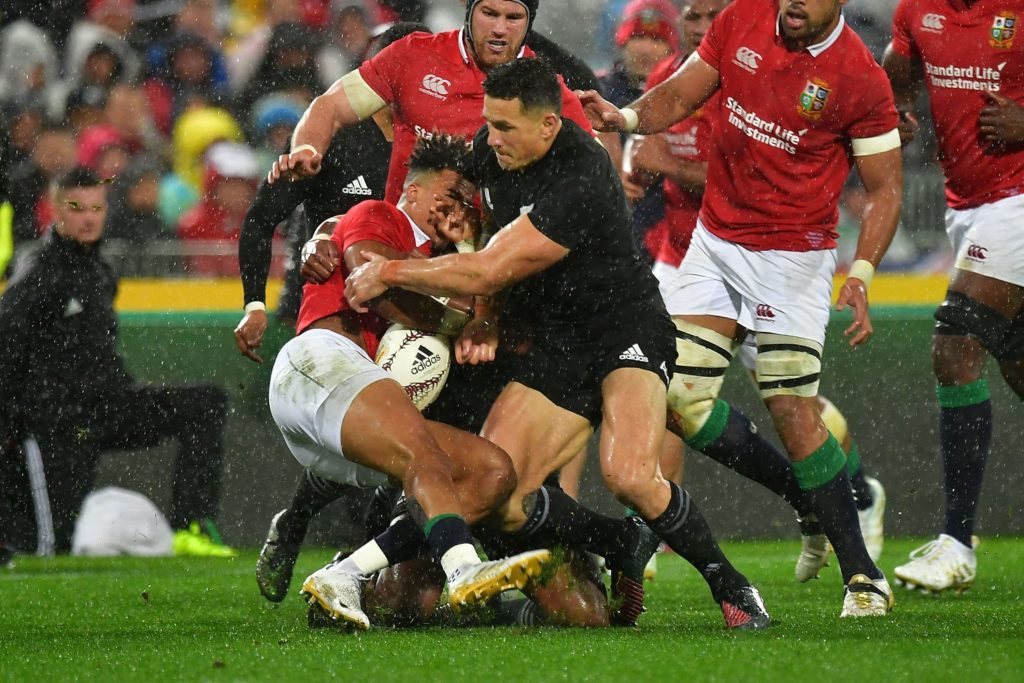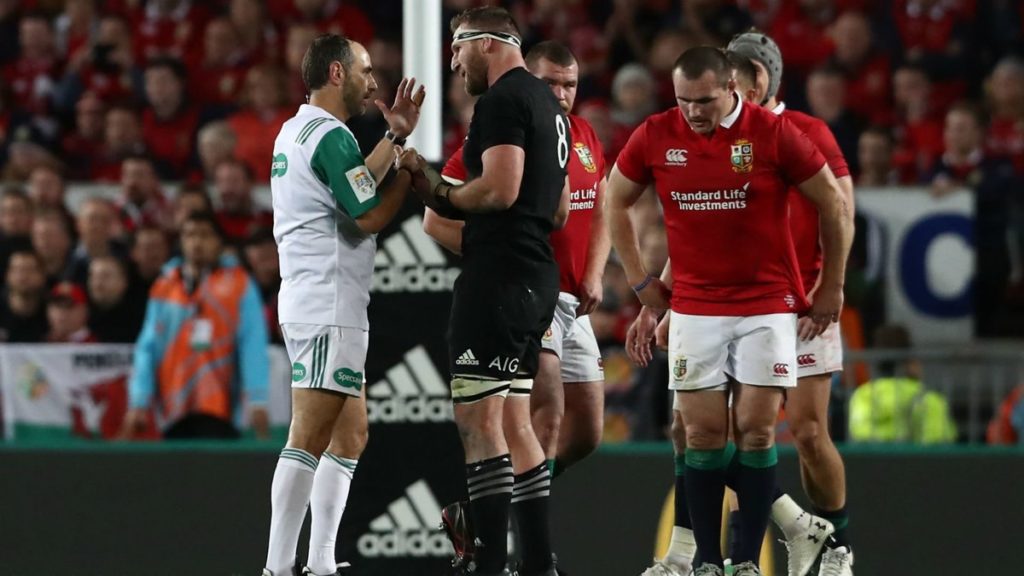On Monday morning All Black fans got confirmation of something they’ve believed for the last four years: that the ending of third and deciding test in the 2017 series against the British & Irish Lions was something shambolic at best and downright dodgy at worst.
French referee Roman Poite acknowledged that he’d stuffed up the climatic ending of what had, against most predictions, been a pulsating series and confounded the notion that the All Blacks get special treatment from the officials.
First, a quick trip back in time to set the scene. The Lions had come to New Zealand with most of the population scoffing at their chances of even winning a game, let alone the test series against the then world champion All Blacks. They certainly looked like they’d live up to those low expectations with losses to the Blues and Highlanders in the build up to the first test, then were soundly beaten 30-15 by the All Blacks at Eden Park. Things had started to shift towards a glimmer of hope with wins over the Chiefs and Maori All Blacks, but the fact that the All Blacks hadn’t lost a test on home soil to anyone in eight years was hanging heavy.
It took a massive, yet ultimately straightforward red card call on Sonny Bill Williams in the second test in Wellington to change all of that.
The Lions held off the 14-man All Blacks 24-21 and immediately altered the travel plans of many travelling fans and media, who had presumed the third test was just going to be a formality and they could debate the future of the team from the comfort of their own homes.

With three minutes to go in the third test, refereed by Poite, the score stood at 15-12 to the All Blacks. Both teams had their chances to take the game, most notably a yellow card to Jerome Kaino giving the Lions a one-man advantage that was nullified by a couple of botched lineouts. However, a penalty on halfway was slotted by Owen Farrell to lock the scores up.
Following the successful three-pointer, the ball was kicked off from halfway, played by Ken Owens in an offside position and Poite ordered a penalty. After some discussion with his assistants and the TMO, however, including in his native French with Jerome Garces, the penalty was downgraded to a scrum.
The almost 50,000 people in Eden Park that night got to witness the rare historical event of a referee actually changing his mind.
Many people rung me after the game and told me, ‘That was a mistake, but it was justice, the right decision to make.’ Even the World Rugby staff management gave me this call.
Romain Poite’s game-changing decision was ratified following the All Blacks’ drawn series with the Lions
The original penalty would have been about 43 metres out and not far from where Allan Hewson had kicked his famous series-winning goal against the Springboks in 1981 – and also where Stephen Donald nudged over his famous goal in the 2011 World Cup final. It was by no means a sure shot for Beauden Barrett, but very gettable. But it was never taken and the series ultimately ended in a draw.
Poite came out this week in an interview with RugbyPass, claiming that in the aftermath of the game he was distraught to the point of trashing his changing room. He now considers himself ‘happy’ with his mistake, because ‘I am human’. OK, fair enough, but the statement he made about getting congratulation calls are pretty troubling:
“Many people rung me after the game and told me, ‘That was a mistake, but it was justice, the right decision to make.’ Even the World Rugby staff management gave me this call.”
This brief line does not augur well for the integrity of rugby’s officialdom at any level. Perhaps whoever felt the need to pick up the phone was thinking about the very similar call Craig Joubert had to make in the 2015 World Cup quarterfinal (Joubert was infamously thrown under the bus by his employers afterwards). So what else are the folks at World Rugby who have the ref’s numbers in their contacts thinking is ‘right’? What is justice in their eyes?

One of the most steadfast narratives throughout the history of test rugby is that the All Blacks get the rub of the green from officials. What this is actually based on is somewhat mysterious to New Zealanders, given the laundry list of poor calls against the All Blacks dating all the way back to their first UK tour in 1905. That doesn’t make them any different from any other test side, mind you.
The most infamous of these in recent times was Wayne Barnes’ non-call of a forward pass in the 2007 quarter final against France, but really, Poite’s decision change and subsequent pat on the back is far, far worse.
It says a lot about the creeping malaise in New Zealand society about the relationship it has with the national game that Poite hasn’t got anywhere near the amount of angst Barnes did (and probably still does) in rugby clubs around the country. But the fact is, the Lions series marked the start of the decline of Steve Hansen’s All Blacks from almost invincible world champions to ignominious semi-final losers at the next World Cup.
Did Poite’s call alter the destiny of the team that much? While it’s not the sole cause, obviously, the fact that the All Blacks went into that series as gigantic favourites and somehow didn’t win lingered on as a failure under pressure.
What would have happened if Poite’s arm had stayed straight in the air and Barrett had kicked the goal? We’ll never know. All we can do now is hope it doesn’t happen again when the Lions take the field against the Springboks in a few weeks’ time.


Comments
Join free and tell us what you really think!
Sign up for free